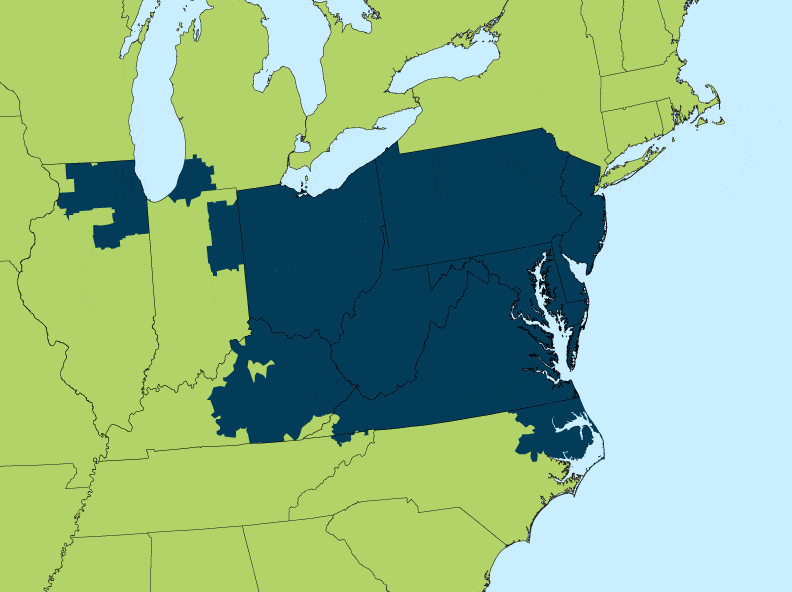FERC Denies Rehearing of Orders on PJM Capacity Market Reforms

The Federal Energy Regulatory Commission on April 16 largely rejected requests to reconsider its December 2019 order that directed PJM Interconnection LLC to extend the minimum offer price, or MOPR, to state-subsidized resources attempting to enter the capacity market. The agency also denied rehearing of its June 2018 order which found that state subsidies distort the market and that the existing market design relating to the MOPR applied in the capacity market is unjust and unreasonable. Democratic Commissioner Richard Glick dissented from the orders, noting that it will make it more difficult for states to shape the future resource mix.
The commission said that MOPR will not apply to resources that provide voluntary renewable energy credits, and also clarified that the Regional Greenhouse Gas Initiative, or RGGI, is not considered a state subsidy because the initiative does not provide payments, concessions, rebates, or other financial benefits to resources.
Several states and clean energy advocates had requested rehearing of the 2019 order, citing its potential to harm renewable generation seeking to participate in the capacity market, and frustrate state policies to support cleaner generating resources. Maryland regulators argued that the order jeopardizes the state’s new renewable energy resources, such as offshore wind projects, and stifle innovation of new energy efficiency products, by pricing them out of the market, according to the state regulator. The New Jersey Board of Public Utilities recently launched an investigation to examine resource adequacy alternatives to achieve the state’s clean energy goals. The MOPR sets a default floor price for generation to clear the capacity market in PJM, the regional grid operator for 13 states including Maryland and the District of Columbia.
The December 2019 order would expand the MOPR to new or existing resources entitled to state subsidies, with certain exemptions. The ruling applies exemptions to existing resources participating in state renewable portfolio standard programs, existing demand response, energy efficiency and storage resources, and existing self-supply resources. Further, federal subsidies will not be subject to the MOPR. Previously, the MOPR required that new, non-exempt natural gas-fired generators offer at or above the offer price floor set by the grid operator.
In April 2018, PJM proposed two approaches to combat the price distortion in its markets as participation of sources receiving out-of-market state revenues continues to grow. In an order issued in June 2018, FERC agreed that state subsidies distort the market, finding that the existing market design relating to the MOPR applied in the capacity market is unjust and unreasonable. However, the commission rejected the approaches and ordered PJM to revamp its capacity market rules. The grid operator responded in October 2018, proposing an expanded MOPR that would apply to existing and new resources regardless of fuel and technology types, along with a unit-specific carve-out option for resources that do not want to be restricted by the MOPR. The “Resource Carve-Out,” or RCO mechanism would offer an alternative to MOPR allowing subsidized resources to obtain a capacity commitment without having to clear the capacity market. Recognizing that the mechanism would not completely protect market clearing prices from the “trade-off” resulting from uneconomic resources, the proposal also included an “Extended Resource Carve-Out” that adds a price adjustment method to restore clearing prices closer to the competitive outcome. In its latest order, FERC adopted an expanded MOPR rather than the RCO and extended RCO proposals.
PJM must submit a ompliance filing within the next 45 days.
EnerKnol Pulses like this one are powered by the EnerKnol Platform—the first comprehensive database for real-time energy policy tracking. Sign up for a free trial below for access to key regulatory data and deep industry insights across the energy spectrum.
ACCESS FREE TRIAL